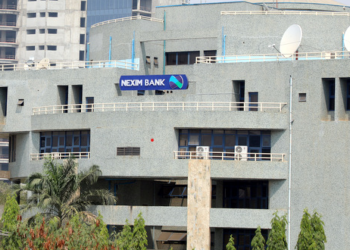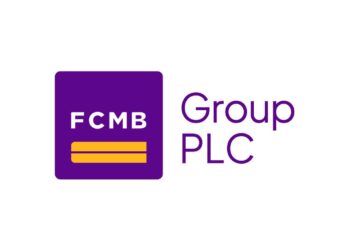The Central Bank of Nigeria (CBN) has released its ‘January 2020 Business Expectations Survey Report’ detailing the challenges affecting businesses in Nigeria.
The CBN, through its Statistics Department, listed high-interest rates of Nigerian banks as one of the many constraints preventing business growth within the country.

According to the regulatory body of the banking industry, the business environment in Nigeria has been challenging for companies due to unfavourable economic climate, insufficient power supply, financial problems, competition and high-interest rates, which have been a discouraging factor for small and medium enterprises in need of credit facility.
In a statement issued by CBN, it was disclosed that, “Respondent firms identified insufficient power supply (66.2 points), high-interest rates (57.1 points), unfavourable economic climate (54.6 points), and financial problems (52.8 points).
“Others are unclear economic laws (51.9 points), unfavourable political climate (46.3 points), competition (45.3 points) and insufficient demand (44.2 points) as major factors constraining business activity in the current month.”
The problem for ease of doing business: Basically, most companies in Nigeria power their electricity themselves through the use of generator. This is because the power supply has not been stable within the country, where about $12 billion is spent annually by businesses and individuals on generators. So, this affects their revenue and profit. Rather than investing their capital for the growth and expansion of the business, the firms are burdened with the power issue.
[READ MORE: CBN injects $218.41 million in SMIS)
Also, policy uncertainty has been a constraint for businesses because it creates unfavourable economic climate. The latest example is the ban on bike-hailing businesses in Lagos, which was announced months after the governor reiterated its commitment to regulating the bike-hailing market for efficiency.
Also, the Finance Act by the administration of President Muhammadu has been hindsight for many businesses and individuals.
Meanwhile, the high-interest rates have been a problem for businesses in Nigeria, as banks begin to use it to stabilise their revenue at a time banks’ other sources of revenue, like e-transaction charges, were slashed by the CBN.
The banks have been offering loans at high-interest rates, rendering the value of the loan insignificant for the debtor. Despite this, borrowing rates are expected to rise in the current month, next month and the next twelve months because businesses will always need capital to operate.
There’s still hope in the business environment: Despite the major constraints listed, companies are optimistic of expansion and employment in the coming month. According to the survey report, the employment outlook index by sector showed that the industrial sector had the highest prospect for employment in the next month, followed closely by the services sector, wholesale/retail trade sector and construction sectors.

While for expansion, the services sector indicates the highest disposition to expand, the wholesale/retail trade sector, the construction sector and the industrial sector also show the prospect of expansion in the next months. The optimism is faced by NECA’s projection that unemployment would increase to 33.5% in 2020, from 23.1% in 2019.
The CBN survey report also stated that the business environment expects improvements in economic conditions in the current month, next six months and next twelve months.
























We simply cannot just run this economy by ourselves, let’s contract this job out. We are only good at identifying the problems
Hello,
I am suggesting the cbn and fg. To remove interest for smes. You should buy and sell the materials to them and add your profits in. to be non-interest loan.
They only sing praises to companies and also make funds available for them to manufacture product, are the companies going to sell directly to consumers themselves the answer is no.
So why is CBN not talking about making loan available for distributor and dealer companies and at low interest rates so that they can easily pay back and also make the product available,affordable and also contribute to the economy by creating job and wealth for the our country.
(When they Say SMEs they are not talking about traders, distributors and dealers ,they are talking about manufacturing Companies alone.)
They only sing praises to companies and also make funds available for them to manufacture product, are the companies going to sell directly to consumers themselves the answer is no.
So why is CBN not talking about making loan available for trader ,distributor and dealer of companies and at low interest rates so that they can easily pay back the loan and also make the product available,affordable and also contribute to the economy by creating job and wealth for the our country Nigeria.
Reply
Great article – Its really sad businesses and entrepreneurs are doing the job of a government e.g producing their own electricity. NG really need to sort that out ASAP.